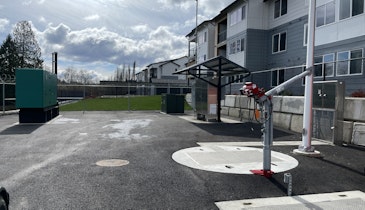After a few months of speculation, the proposal to give Michigan a statewide sanitary code is now in the Legislature.
House bills 5752 and 5753 would establish rules for onsite systems and require the creation of state rules for them. According to an analysis prepared by the House Fiscal Agency, the bills would:
- Require the state Department of Environmental Quality to develop a statewide code that would set standards for siting and design of onsite systems, for effluent, for inspection and maintenance of onsite systems, and for the qualifications and continuing education of people managing onsite systems, among other things.
- Allow local health departments to administer the code.
- Forbid local governments from adopting point-of-sale ordinances that require an inspection of an onsite system when a property is sold.
- Require the owner of a septic tank to have it assessed at least every 10 years by a local health department or a registered inspector or service provider.
- Require alternative systems to be inspected by the state, local health department, or registered inspector at least once every five years.
- Require all installations after Jan. 1, 2020 to be done with a permit from the state or local health department and using only products that have been registered with the DEQ for use in Michigan.
- Establish a technical advisory committee of 16 people, including three from the onsite industry, to advise the DEQ on its rules.
People inspecting septic tanks would have to document their inspections and file reports with the local health department or DEQ. They would also be required to charge a $25 state fee in addition to their own billing, and this money would be channeled to a special fund that would also draw money from the fees people would pay to become licensed inspectors and fees charged to companies to register their products for use in the state. Money in the fund would be used to administer the code and provide grants to health departments for their work in administering the code.
The bills were sponsored by Rep. Jim Lower, R-Cedar Lake, who introduced 5752, and Abdullah Hammoud, D-Dearborn, who introduced 5753. WasteWater Education, a nonprofit based in Traverse City and dedicated to educating people about water issues, expressed concerns about the bills early on because little was known about the process of drafting them and who was involved in drafting.
Advocates of a statewide code have been asking for one for some time. Joan Rose, who holds a doctorate in microbiology and directs the Center for Advancing Microbial Risk Assessment and Center for Water Sciences at Michigan State University, pointed out in 2017 that counties pass point-of-sale ordinances because the state’s rivers and streams are increasingly under assault from dangerous levels of disease-causing bacteria and viruses. And Michigan is the only state in the country without a uniform sanitary code, she wrote in a commentary for a think tank.
In mid-June of this year, the three counties in the Mid-Michigan District Health Department — Gratiot, Clinton and Montcalm — said it’s time for regulations on septic systems in their area. An officer of the health department told citizens that estimates suggest 15 to 20 percent of homes along local rivers have no onsite system or have a failed system. Members of a health department committee are drafting an ordinance. When it’s ready, it will go to the three county commissions for approval. Rep. Lower’s district includes Montcalm County and parts of Gratiot County.
Clean Water Action is on board with the idea of a state code, too. The national environmental advocacy group, which has branch offices in Michigan, says the bills need to be strengthened with a sustainable funding mechanism for local health departments so they can carry out duties under the code, and with an inspection of entire systems at least every 10 years. The current bills specify inspections of tanks only.
In the Upper Peninsula, the Marquette County Commission approved a resolution opposing the bills. Gerald Corkin, board chairman, was quoted in The Mining Journal as saying, “As far as Marquette County, with the local control, it’s worked very well, and (for the Legislature) to come out with new mandates and increase the cost and everything, we just don’t see that it’s necessary here and the rest of the counties in the U.P. feel the same.”
The House Fiscal Agency says the costs of the bill are hard to project because the state has never administered such a program. The agency estimated the special fund would average about $3.25 million annually, but it is unclear whether the cost of the program will match the revenues.
Mountaire Farms to pay fine for wastewater violation
A poultry producer in Millsboro, Delaware, has agreed to pay a $600,000 penalty for violating wastewater regulations. The penalty will be reduced to $420,000 if the company improves drinking water for nearby people within 60 days.
For several months Mountaire Farms had been required to supply bottled water to people near its Millsboro chicken plant because their wells may be contaminated with high levels of fecal coliform bacteria and nitrate.
The state Department of Natural Resources and Environmental Control said in 2017 that the company released hundreds of gallons of wastewater containing 41 times the permitted level of nitrate and up to 5,500 times the permitted level of fecal coliform. The department also said Mountaire land-applied more than 2 million gallons of activated sludge without the plan required by state rules.
Once the agreement is approved by a judge, the company will have two years to build a new onsite facility. Several Mountaire Farms employees were fired as a result of the violations.
Colorado county votes to require point-of-sale inspections
Gunnison County (Colorado) commissioners voted in June to require onsite system inspections before title to a property is transferred.
Inspections would be valid for two years. The rule is intended to cover properties in unincorporated areas of the county that are not part of any other special area. Property owners in the Crested Butte watershed, for example, are required to have their systems inspected every two years.
Any system repaired or built within the last four years would be exempt from the new rule. Also exempt would be property transfers because of death or foreclosure.
Brieonna Aljets, CEO of the Gunnison Country Association of Realtors, tells the Crested Butte News that the rule is unlikely to inhibit property sales. Many buyers already have onsite systems inspected as part of the purchase process, she says.
Canadian city takes septic pumping into its own hands
The city of Laval, Quebec, is removing the risk of unpumped tanks by doing all pumping itself.
Residents of the city, which occupies an island on the northwestern side of Montreal, will have their tanks emptied every two years by the city if they are not connected to a municipal sewer system. Before a tank is pumped, citizens must locate the tank and its hatches and make sure there are no obstacles for the pumping contractor.
Residents who need to have a tank pumped more often, or who have properties with more then one tank, must assume the extra expense and arrange service with the contractor appointed by the city.
Men arrested for illegal dumping in Connecticut
Three men were arrested for illegally dumping septage into a storm sewer, reports the News-Times of Norwalk, Connecticut.
Police say the three men dug a hole at a home and pumped a significant amount of waste from the 1,000- or 1,500-gallon tank into a storm drain. A neighbor tipped off police to the activity.
Francisco Tomas Vidal, of Danbury; Pablo Pintado Penaloza, of Manhattan, New York; and Oscar Anselmo Hernandez-Jimenez, of Spring Valley, New York, were arrested on suspicion of illegally dumping hazardous waste, criminal mischief in the third degree, and breach of peace.
Indian man beaten for complaint about neighbors’ faulty septic
A man in a north India town decided to seek his own resolution to a wastewater problem, and wound up in the hospital.
Bant Singh went to the house of his neighbor to complain that the neighbor’s septic tank was leaking into the main street and causing problems for Singh and his family. Police say the neighbor, Daljit Singh, and his wife Jasvir Kaur, attacked Bant Singh. Other neighbors intervened and took Bant Singh to the hospital. Daljit Singh and Jasvir Kau were arrested, and in late June an investigation was underway.






